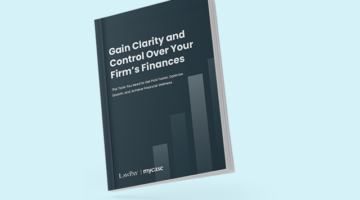 Yesterday, ProPublica published an in-depth article titled “The Secret IRS Files: Trove of Never-Before-Seen Records Reveal How the Wealthiest Avoid Income Tax.” Its goal was to show how the richest people in America are paying little or even no income tax. The authors stated that they had inside, confidential information and tax documents of thousands of the nation’s wealthiest people.
Yesterday, ProPublica published an in-depth article titled “The Secret IRS Files: Trove of Never-Before-Seen Records Reveal How the Wealthiest Avoid Income Tax.” Its goal was to show how the richest people in America are paying little or even no income tax. The authors stated that they had inside, confidential information and tax documents of thousands of the nation’s wealthiest people.
This claim is nothing new. A lot of people have cynically viewed it as a benefit of being rich: having the money to hire tax advisors and having assets to shift around in a manner that will minimize taxes.
The article didn’t provide any documents although it featured some well-known financial titans such as Mark Zuckerberg, Elon Musk, Michael Bloomberg, Jeff Bezos, and Warren Buffett. It states that in the coming months, it will feature in-depth articles on how the ultra-wealthy avoid taxes. While I am inclined to believe that the authors are being honest, the fact that they are asking for help makes me wonder what confidential information they really have. And as common with these whistleblower cases, the information was probably obtained illegally or by breaching confidentiality agreements.

Take Control Of Your Firm’s Finances With Tools Built For Success
Position your firm for long-term growth with better financial visibility and control. Learn how to track performance, manage spending, and plan strategically—download the full e-book now.
One common tactic that the ultra-wealthy use to avoid taxes is to hold on to their stock while its value appreciates. The article uses Amazon’s Bezos as an example. When the stock value of Amazon doubled, it increased his net worth by $3.8 billion. But he was not taxed on this increase. The taxable event occurs when the appreciated stock is later sold. This is known as the realization event. This is why you don’t pay taxes on your Bitcoin or your Pokemon Charizard Hologram card until it is sold.
The simple reason why an increase in value is not taxed is because the taxpayer does not have the money to pay the tax on the increased value. It can result in an anomalous situation where a taxpayer will have to sell the very asset in order to pay the tax on the increase in value. Also, when will the taxable event occur? Whenever there is a sudden jump in value? Or at end of the taxable year? Or by taking the average value over the course of the year?
Finally, can the taxpayer claim a loss or deduction when the value of the stock declines? I find it amusing that those who demand taxation when an asset value increases are silent on this question.
Another tactic that the wealthy use to avoid taxes is to take loans or dividends which are usually taxed at a lower tax rate. The article refers to several billionaires who have taken low salaries (in some cases only $1) instead of being paid a salary that will likely be taxed at the top tax rate.

Your Law Firm’s Website Is Failing You.
Here’s What The Best Ones Are Doing Differently.
A nontax reason why executives take a slave-labor salary is because they generally get paid through performance-based stock options and bonuses. It also keeps money in the company for investment, which will please shareholders and investors. Generally, this alternative compensation agreement is a win-win for both for the executive and the shareholders.
The reason why loans are not taxed is because they have to be paid back and with interest. The IRS even mandates that a minimum amount of interest (known as the Applicable Federal Rate) be charged on loans in order to avoid being taxed on the forgone interest on below market or zero interest loans. If the loans are not paid back, the debtor and the IRS will get a 1099-C where the forgiven debt is considered income. I get that loans between related parties can be very flexible when it comes to demanding payback. But if the IRS auditor thinks the loan is a sham, the taxpayer will have to pay income tax on the sham loan along with penalties and interest.
The article also complains that executives pay themselves a low salary as a tax-dodging tactic. For example, it claims that in 2015, Musk paid $68,000 in federal income tax. In 2017, it was $65,000, and in 2018 he paid no federal income tax. Between 2014 and 2018, he had a true tax rate of 3.27%. Why did Musk the billionaire pay so little? The article doesn’t say but it might have had something to do with Tesla reporting multimillion-dollar losses in 2015, 2017, and 2018 where Musk stated that the company was on the brink of bankruptcy.
Look, I get that there are flaws with the tax code and something needs to be done about income inequality. Certain emotions go through my head when someone can purchase a $500 million kangaroo yacht with his pocket change while I have to constantly choose between Subway’s $6 footlong of the day and the local fast-food $1 menu items. I think changes can be made without demonizing those who succeeded. But that’s a column for another day.
I was impressed with ProPublica’s prior article exposing TurboTax’s efforts to hide its free filing service so I was expecting something similarly good. Unfortunately, this article didn’t bring any new insights. It only brought out the same talking points for increasing taxes on the ultra-rich. And most of the information in the article is generally known for the most part. And those who are thinking about leaking confidential tax information should know that the feds will be watching and the wealthy will be taking steps to prevent future leaks. Hopefully their future columns will bring something concrete to the table.
Steven Chung is a tax attorney in Los Angeles, California. He helps people with basic tax planning and resolve tax disputes. He is also sympathetic to people with large student loans. He can be reached via email at [email protected]. Or you can connect with him on Twitter (@stevenchung) and connect with him on LinkedIn.